memo20-07-02
Knowledge about Japan
Ancient Folklore
The Story of Hikoboshi and Orihime
If you want to see the image at full size,
save it and see it.
(Confirmed with google chrome)
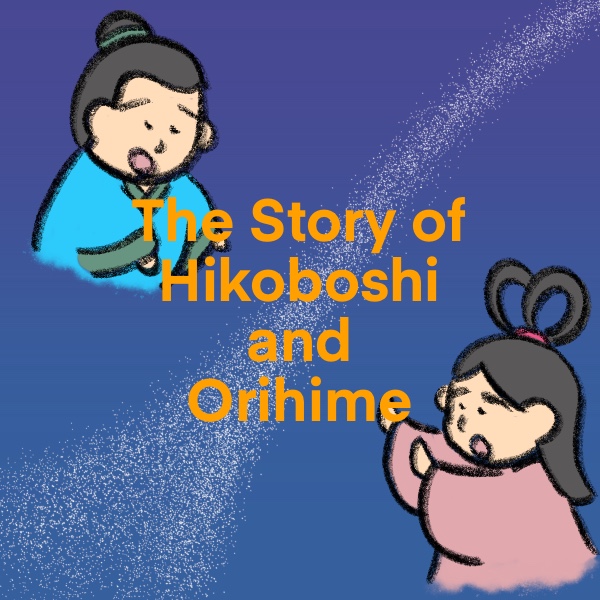
In Japan, there is a holiday called Sekku.
"Sekku" is a traditional event in which offerings are made to spirits at seasonal and agricultural milestones to pray for good health and to purge evil spirits.
It was originally a Shinto ritual from ancient times, but Buddhist events and ideas that were introduced to Japan along the way have influenced it, and it has been transmitted to the present day as a mixed culture.
"Sekku" is sometimes collectively referred to as "Go(5)Sekku".
"Go(5)Sekku" is celebrated five days a year: "Jinjitsu" on January 7, "Jhoshi" on March 3, "Tango" on May 5, "Shichiseki" on July 7, and "Choyo" on September 9.
The originally existing "Go(5)Sekku" was re-designated as a national holiday by the central government during the Edo period, and was abolished in 1873.
However, even after "Go(5)Sekku" was discontinued, it became a common event and has remained so to this day.
In ancient Japan, where rice cultivation was already practiced, there was a ritual of weaving kimonos in summer and offering them to the spirits to pray for a good harvest in autumn.
The women who were to weave the sacred kimono were selected in advance and used a loom called a "Tanabata" to weave the kimono.
Later, Buddhism came to Japan.
There is a Buddhist event called "Kikouden".
This is a Chinese event in which women offer needles and other items at an altar in their yard on July 7, hoping that their weaving and sewing skills will improve.
There is also a story of Chinese origin called "Gyurou-Shukujho".
This is the story of Hikoboshi and Orihime, a man and a woman.
Hikoboshi is a man who works as a farmer.
Orihime is a woman whose occupation is weaving.
The Spirit was angry that these two did not work at all after their marriage, and the Spirit separated them.
After that, they were allowed to meet only on July 7, and were obliged to work hard the rest of the year.
All of these things combined, and after it became an event of the Imperial Court in the Heian period, elements of art were added.
It was not only to pray for good harvests and sewing, but also to pray for the improvement of calligraphy, literature, and poetry.
Later, in the Edo period (1603-1868), it spread from the imperial court to the people, and various elements were added.
On this page, you will find the story " Gyurou-Shukujho " in the commentary above.
![]()
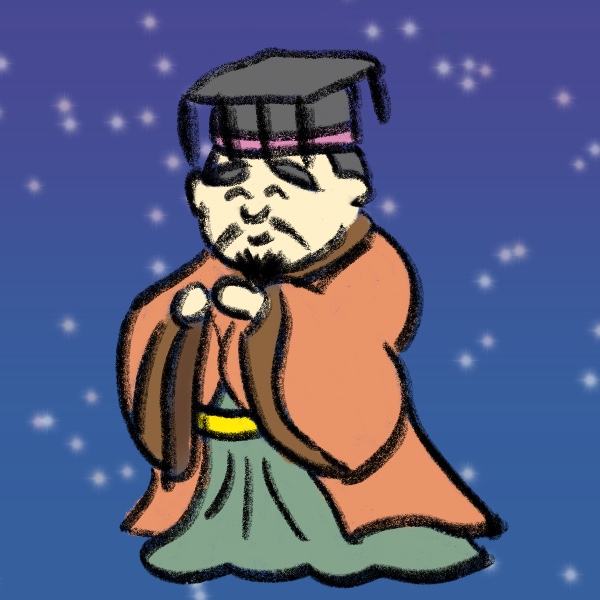
The king of the heavenly spirits had a daughter named Orihime.
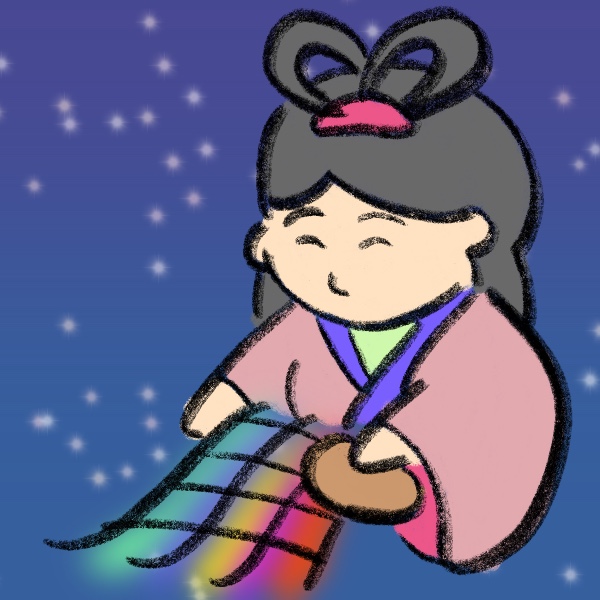
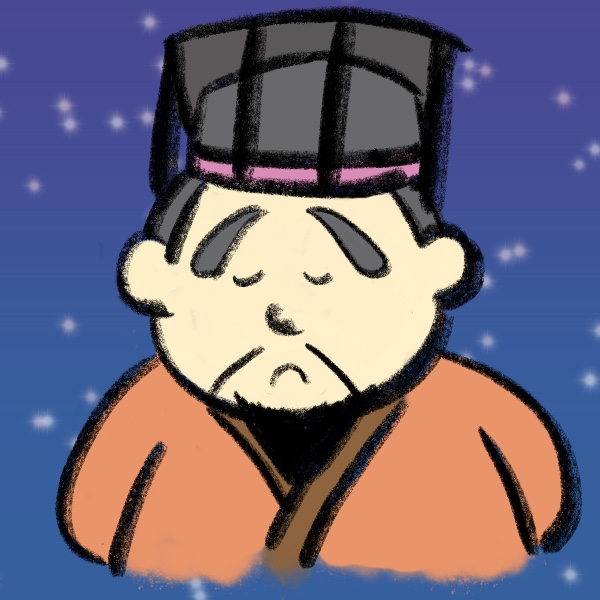
The king of the heavenly spirits was so pleased with Hikoboshi that he decided to marry her to Orihime.
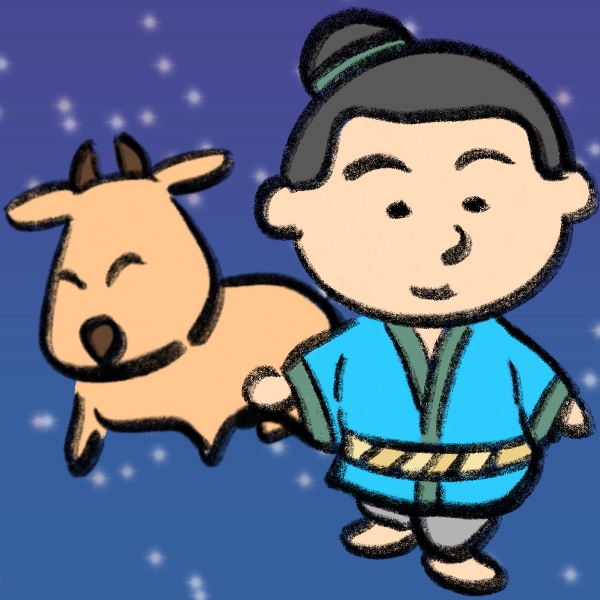
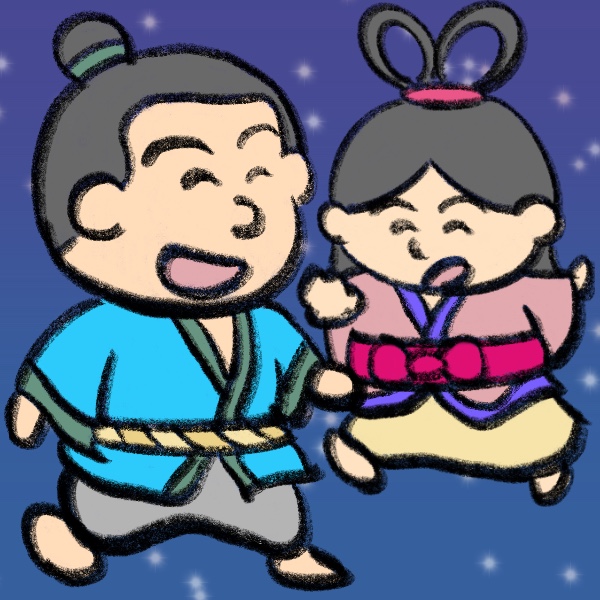
And so they played every day without working.
Because Hikoboshi did not take care of the cows, they grew weak.
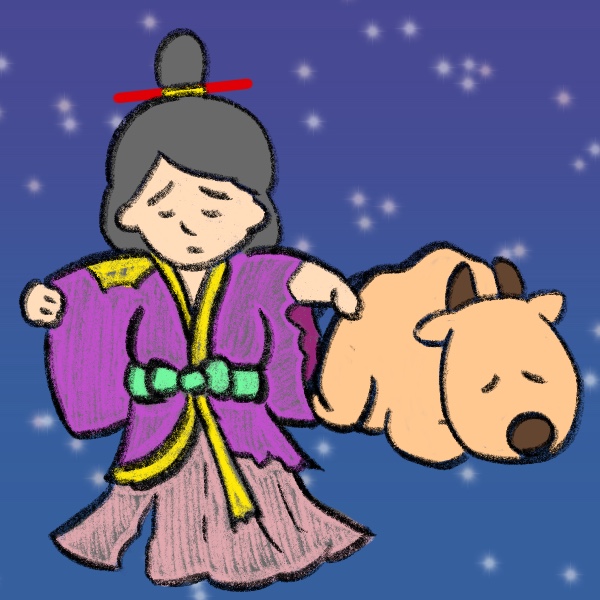
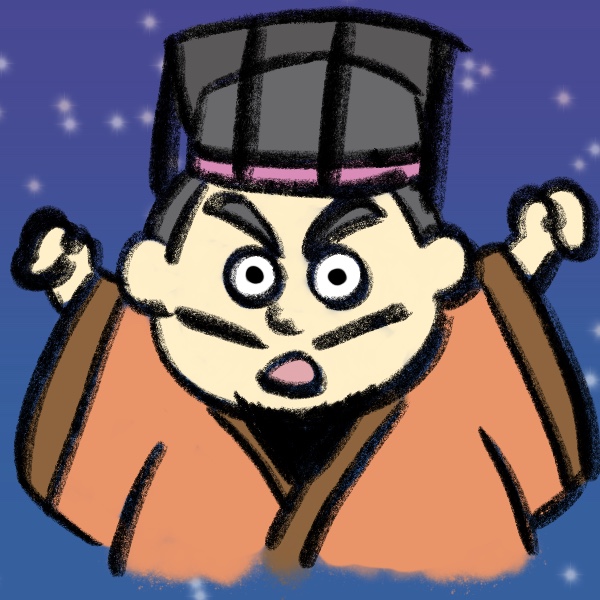
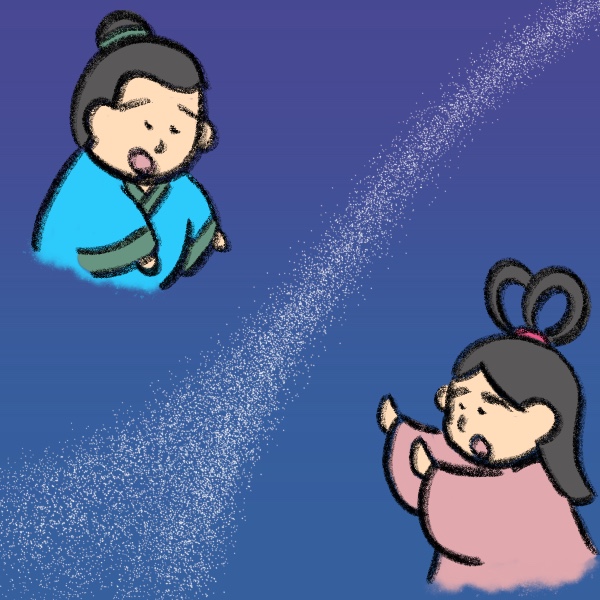
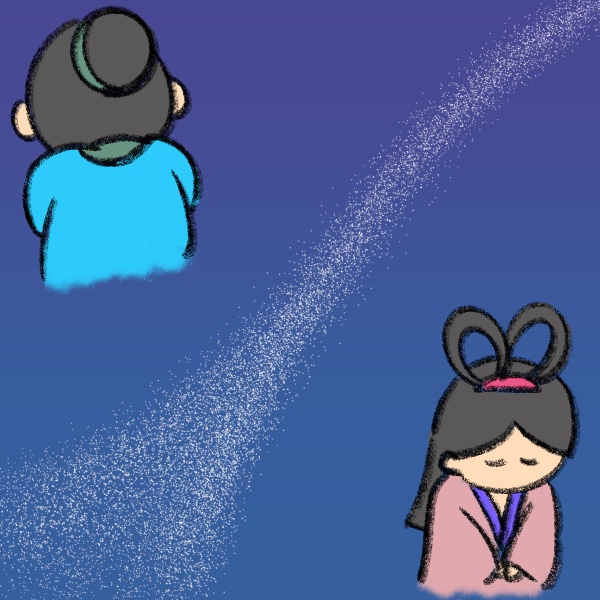


The king of the heavenly spirits was very troubled by the fact that the situation had not changed.
Many birds called "magpies" gather in the Milky Way to form a bridge for Hikoboshi and Orihime to meet.
Hikoboshi and Orihime are finally feeling better.



Hikoboshi and Orihime are now the hard workers they used to be.
- The End -
#節句
#sekku
#七夕
#tanabata
#shichiseki
#彦星
#織姫
#Hikoboshi
#Orihime
#牛郎織女
#GyurouShukujho
#GyuroShukujho
#GyuroSyukujo
#
#
#
#